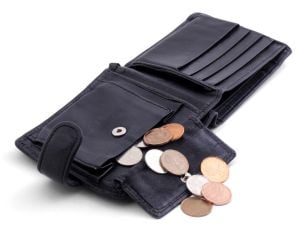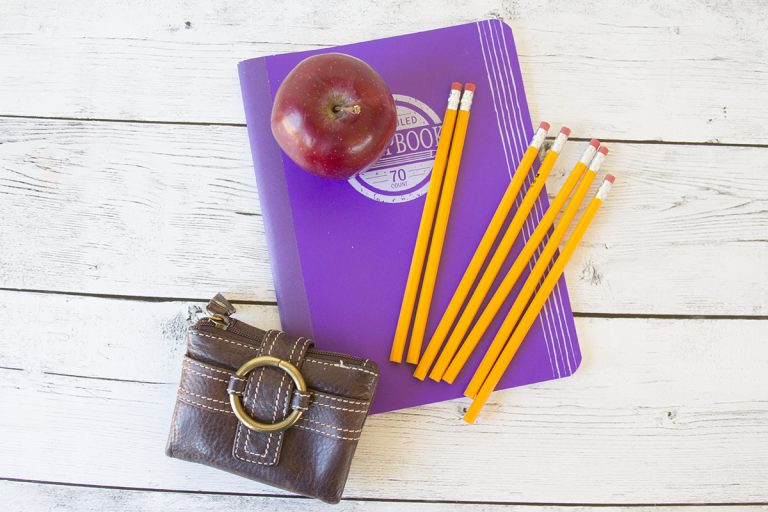Top 5 Budget Busters
Many families are learning to live on a budget for the first time and it can involve a lot of trial and error in the beginning. Budget does not have to be a nasty word, in fact, practicing a frugal lifestyle can help you live more richly than you ever had before. Budgeting does not mean giving up the things you love, you just have to shop smart and buy things on sale. Being aware of the most common budget busters can help you keep more of your money without sacrificing anything essential.
Late Fees
There’s nothing worse than paying late fees, whether they come from credit card bills or overdue library books. Late fees can break your monthly budget and quickly cause you to owe more on a credit card than your original balance. Keep track of deadlines to avoid paying unnecessary fees. Mark due dates for library books and movie rentals on a calendar and keep a schedule of your household bills. In today’s economy, many families are faced with bills that they don’t have the money to pay. Many credit card companies are willing to make payment arrangements and even waive late fees if it is a first offense.
Convenience Foods
We all have to eat, even if we don’t have time to cook a healthy meal. Many busy families resort to prepackaged convenience foods or eating out for family mealtime. Planning a weekly menu and going grocery shopping with a detailed list can make it easier to have simple meals on hand to cook. Freezer meals can be kept available and quickly thrown in a crock pot in the morning or thawed overnight and reheated before dinner. Quick meals like pre-cooked rotisserie chicken or deli meat sandwiches can be thrown together easily with very little prep time. If you do have to eat out, drink water. Soda and other drinks can add up and they are a fraction of the cost in the grocery store.
Not Knowing Where Your Money is Going
It is difficult to create a budget in the first place if you do not know how much money you are really spending. Many families drastically underestimate what they need on a monthly basis to maintain their current lifestyle. Keep track of every expense, no matter how small, for one month. You may be shocked to find out that hundreds of dollars are disappearing to unnecessary and unessential expenses. Once you know where your money is going you can create a realistic budget and cut out any unnecessary expenses.
Splurging on Small Stuff
 During times of stress it is easy to talk yourself into splurging on something that will temporarily relieve your stress, you deserve it after all. Splurging every once in a while is fine but when it becomes a habit it can really start to affect your monthly budget and many people go deeply into debt as a result of splurges. Look for ways to reward yourself without spending money. Treat yourself to a hot bath at the end of the day. Watch a favorite movie from your own collection (or trade with a friend) after the kids have gone to bed. Make a special dinner at home and create a great atmosphere by using nice china and cloth napkins. You don’t have to spend money you don’t have in order to reward yourself for your hard work.
During times of stress it is easy to talk yourself into splurging on something that will temporarily relieve your stress, you deserve it after all. Splurging every once in a while is fine but when it becomes a habit it can really start to affect your monthly budget and many people go deeply into debt as a result of splurges. Look for ways to reward yourself without spending money. Treat yourself to a hot bath at the end of the day. Watch a favorite movie from your own collection (or trade with a friend) after the kids have gone to bed. Make a special dinner at home and create a great atmosphere by using nice china and cloth napkins. You don’t have to spend money you don’t have in order to reward yourself for your hard work.
Paying Full Price
Coupon cutting may not be for everyone but you can save hundreds of dollars a month on your grocery budget alone by learning how to use them. Combining coupons with sale prices can enable you to get many basic items for practically nothing, or free if you plan it right. If the idea of planning your weekly shopping list around coupons and sales is overwhelming, try The Grocery Game, a service that does the hard work for you and tells you which items are a good deal at your local stores. Your grocery budget it not the only place that coupons can save you money. Look for coupons or discount gift certificates to your favorite restaurants, local entertainment, and vacation destinations. Many stores routinely offer 20% off coupons in local papers. A quick online search can help you find coupon codes for many of your favorite stores.
A few small changes can make a big difference in how far you can stretch your money. Working on one frugal habit at a time often feels more manageable and with a little bit of practice, living a frugal lifestyle will become second nature.


